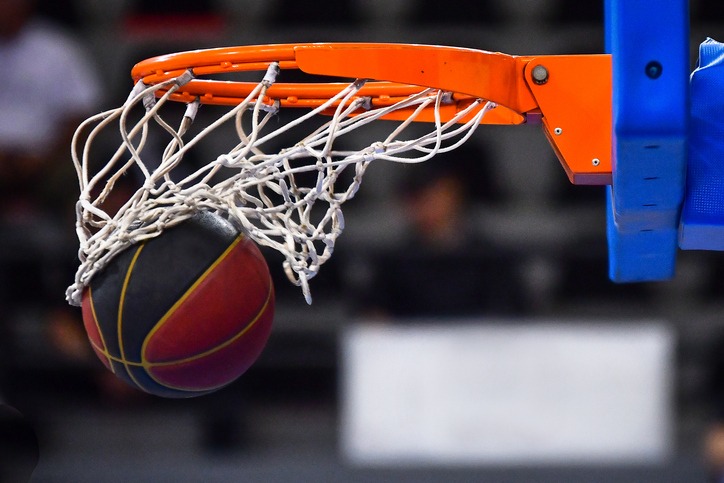Drafting Your Dream Team – Expert Tips on Building a Winning College Fantasy Football League

Drafting a winning college fantasy football team is no small feat – it takes to research and strategy to craft a roster of players that can compete for a championship. Luckily, you don't have to be a professional scout to assemble a winning team. Whether you're a college sports fan or are just looking to flex your sports knowledge, we'll equip you with the tools needed to be a successful fantasy football manager. With the right strategies, you can draft a dream team and gain the bragging rights that come along with it. Read on to learn more.
Understand the College Fantasy Football Rules
Before starting the drafting process, it is important to understand the rules of College Fantasy Football. Depending on the format of the league you are joining, the rules may differ slightly. Generally speaking, College Fantasy Football involves drafting a team of college players, with each player's fantasy point output determined by their performance in real-life NCAA football games. And College fantasy player rankings are based on statistical performance and predictions for the upcoming season.
The team with the highest total of fantasy points at the end of the season is the winner. Be sure to read the rules carefully to determine the differences between formats. Also, be aware of the player salaries, position requirements, and rules for pick-ups, waivers, and trades. By understanding your league's rules, you can set yourself up for success during the draft.
Research the Players
Before you even think about drafting, you should have a thorough knowledge of the players you'll be picking. Fantasy football is a game of knowledge—the more you know, the better your chances of drafting a winning team.
Research the players' stats, recent news, and team dynamics. Pay special attention to any injuries or situations that could influence their performance. Take the time to learn the nuances of the game and the players. Doing so will give you a huge advantage over those who don't do their homework.
Assess Your Budget
The next step in drafting your dream team is to assess your budget. Knowing how much you can budget for a college fantasy football team will help you make informed decisions while selecting players. Establish a budget that is realistic, ensuring that it is within your means and that you are able to stay within the salary cap.
Be sure to factor in any fees or entry fees that may be required, as well as any additional expenses, such as food or entertainment for your team's friends and family. Taking the time to carefully assess your budget will ensure that you can make informed decisions regarding the players you select for your team.
Plan Your Draft Strategy
One of the key aspects of building a winning college fantasy football league is to plan your draft strategy. Prior to the draft, make sure to do your research and develop a draft plan that outlines which players you are targeting and what roles they will play in your team. This can be done by assessing the strengths and weaknesses of your team, as well as looking into the players' stats, trends, and projections.
Additionally, it is important to consider how you will adjust your strategy if a player you were targeting is taken before it is your turn. By having a well-thought-out plan, you can ensure you are able to build the best possible team and have a successful college fantasy football league.
Analyze the Players' Performance
After the draft is complete, it's important to analyze the performance of each of the players you chose. This will help you to identify any weaknesses or strengths in your team and to make adjustments based on the data. Make sure to look at stats such as yards gained and touchdowns scored, as well as any injuries or suspensions that have impacted a player's performance. With careful analysis, you can make changes to your team that will help you build a successful fantasy football league.
Monitor Player Injuries
Though this may seem like an obvious suggestion, it's not something to be taken lightly. Your players' health is of the utmost importance. Be sure to stay up to date on the latest injury reports and adjust your fantasy team accordingly. Injuries can derail a team's season, so be sure to keep an eye on all of your players throughout the season. That way, you can make the necessary adjustments to ensure you have the best team possible.
Identify the Best Matchups for Your Team
Identifying the best matchups for your team is essential when it comes to drafting the most successful college fantasy football team. To do this, you need to understand your team's strengths and weaknesses, as well as the strengths and weaknesses of your opponents. This will allow you to determine which matchups will be most favorable for your team and which opponents to avoid.
Additionally, you should take into account the individual matchups between your players and the players on opposing teams. Doing so will help you to create a team of players that can consistently outperform their opponents.
Stay Up-To-Date on College Football News
Staying up to date on college football news is essential to building a successful fantasy team. Keep track of player injuries, coaching changes, and game strategy. Knowing the latest news and developments can give you a better understanding of the teams and players you are considering for your fantasy team.
You should also pay attention to any changes in the college football landscape, such as new NCAA rules, conference realignments, or new bowl game sponsorships. All of these can have an impact on the players and teams that you'll need to consider for your fantasy team.
In conclusion, college fantasy football is a great way to add an extra layer of excitement to the already thrilling college football season. With a little research and some strategic team-building, you can assemble a winning squad that will have other fantasy players envious of your success. By following the expert tips, you can be well on your way to assembling your dream team and competing for a championship in your college fantasy football league.




